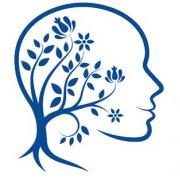We’re In the Middle of a Cultural Shift to Reclaim Sleep
The Sleep Revolution: One year later.
by Arianna Huffington

One of the more amazing signs of the acceleration of the cultural shift that is taking place is an article that appeared in The Harvard Business Review in February 2016 about how “sleep deficiencies can undermine important forms of leadership behavior.” The authors were both from McKinsey, the management consulting firm — and one of them is, yes, a sleep specialist. Now, if someone, even a year ago, had shown me an article written by McKinsey consultants saying that the way for executives to be better leaders is to sleep more, not less, and that McKinsey would actually have a sleep specialist on staff, I would have assumed the piece was from The Onion.
But the piece was real, and so is the science behind it. As the authors note, sleep has a profound effect on the brain’s prefrontal cortex, home of advanced cognitive processes such as planning, decision-making, and problem solving — all very handy skills for business leaders. “Sleep (mis)management, at one level, is obviously an individual issue,” the authors write. “But in an increasingly hyperconnected world, in which many companies now expect their employees to be on call and to answer emails 24/7, this is also an important organizational topic that requires specific and urgent attention.”
More and more top business leaders are doing just that. One of the most important parts of this cultural shift is changing our workplace culture — perhaps the biggest single factor in taking back our sleep. If we don’t continue to chip away at our collective delusion that burnout is the price we must pay for success, we’ll never be able to restore sleep to its rightful place in our lives. The good news is that more and more business leaders are realizing that what’s good for their employees’ well-being is also good for business.
Mark Bertolini, CEO of Aetna, the health-care benefits company, has long been a leading voice in changing our workplace culture. First, he offered yoga and meditation to Aetna employees, with a resulting drop in health-care costs and an increase in productivity. Then, he began an innovative sleep program, encouraging Aetna employees to sleep more by paying them more. Those who get seven hours of sleep can earn $25 extra per night, up to $300 per year. It’s a great way to make the point that when employees get the sleep they need, it’s not just good for them, it’s also good for the company’s bottom line.
Another area in which there has been significant progress is drowsy driving, which is finally beginning to be seen as a public health and safety issue — much in the same way drunk driving has been. According to the National Highway Traffic Safety Administration, each year drowsy driving is responsible for an estimated 1.2 million car crashes, killing 8,000 people. As part of a new change.org campaign to raise awareness about the dangers, thousands took the pledge not to drive drowsy with many supporters sharing their stories. “Fatigued driving can kill you — and it’s almost happened to me on more occasions than I care to count, as a long-haul trucker,” wrote Jimmy Frost of Virginia Beach, Virginia. Many other signers also had had close calls. “I am signing because when I was a teenager, I was in a car accident after falling asleep behind the wheel of my vehicle,” wrote Justin Schiefelbein of Brownsville, Pennsylvania. “My vehicle was the only one involved, but now, sixteen years later, I still have medical problems from that accident. It is not worth risking your health and safety, and that of others.”
Awareness of the dangers of sleep deprivation extends to air travel, as well. In April 2016, Captain Chesley “Sully” Sullenberger, who famously guided all 155 passengers of U.S. Airways Flight 1549 to a safe landing in the Hudson River, traveled to Washington to lobby for passage of the Safe Skies Act, which would give cargo pilots the same rest requirements as pilots of passenger planes. “Let me be very direct,” he said. “Fatigue is a killer.” And in New York City, Governor Andrew Cuomo announced in April 2016 that the Metropolitan Transit Authority would begin testing employees for sleep apnea. This came in reaction to a deadly 2013 Metro-North derailment, in which the train’s engineer had been living with an undiagnosed case of the sleep disorder.
So it’s been an incredible year for making us more aware of the importance of sleep in our lives. We’ve got a long way to go, but it’s clear that we’re waking up to the power of sleep. It’s both unique and universal, intensely personal and yet common to us all. It gives us strength, energy, power, and creativity. It makes us happier, less anxious, more productive, and more able to handle the everyday stress of our lives. But sleep should also be savored for its mystery, the way it provides a pathway for us to travel across time, to go inward and access a deeper part of ourselves.
I’m thrilled to say that the Sleep Revolution is in full swing, and I hope that after reading this book, you’ll join us.
Excerpted from The Sleep Revolution by Arianna Huffington. Copyright © 2017 by Christabella, LLC. Published by Harmony Books, an imprint of Penguin Random House LLC. All rights reserved.





















-55x55.jpg)




